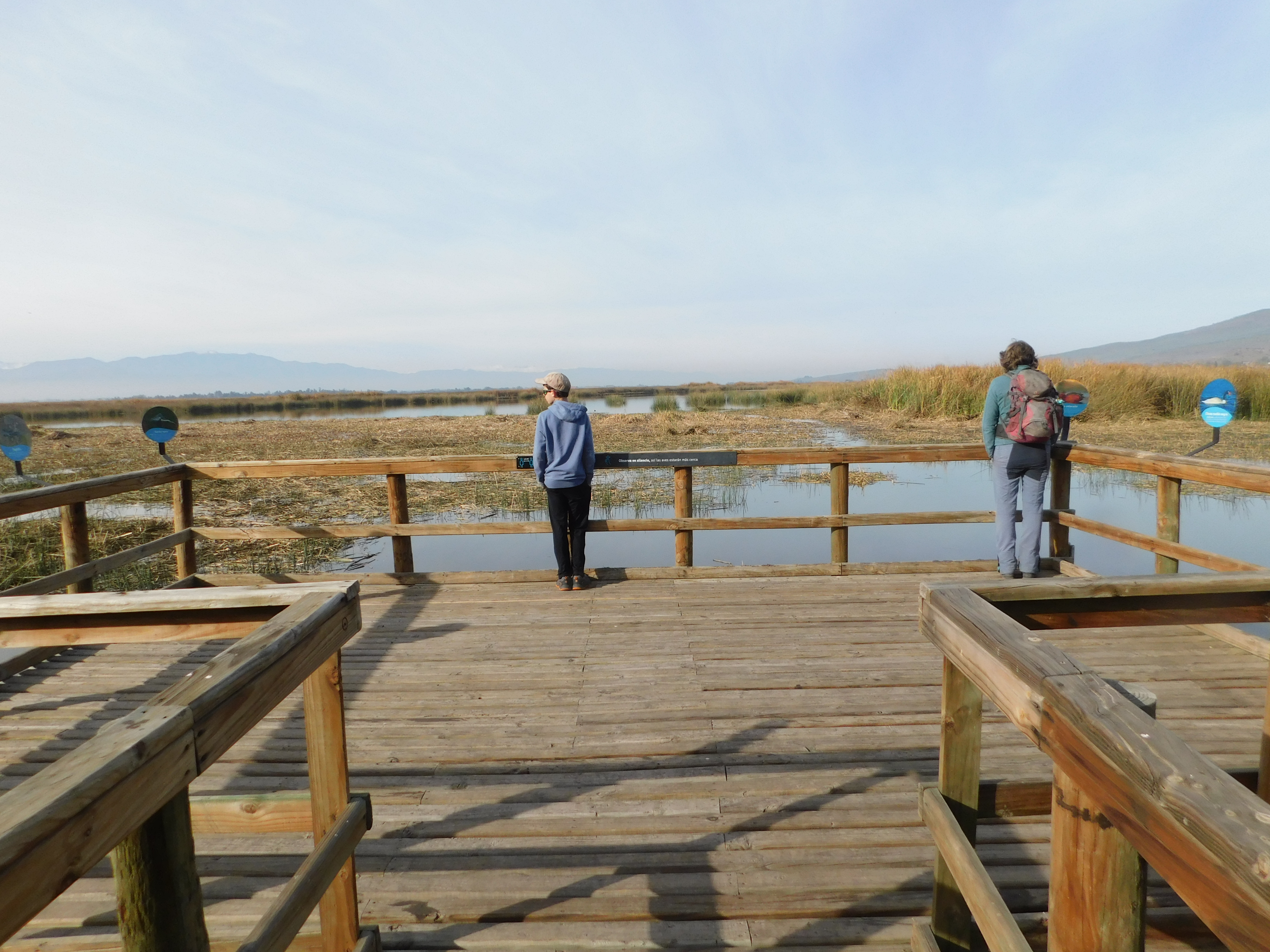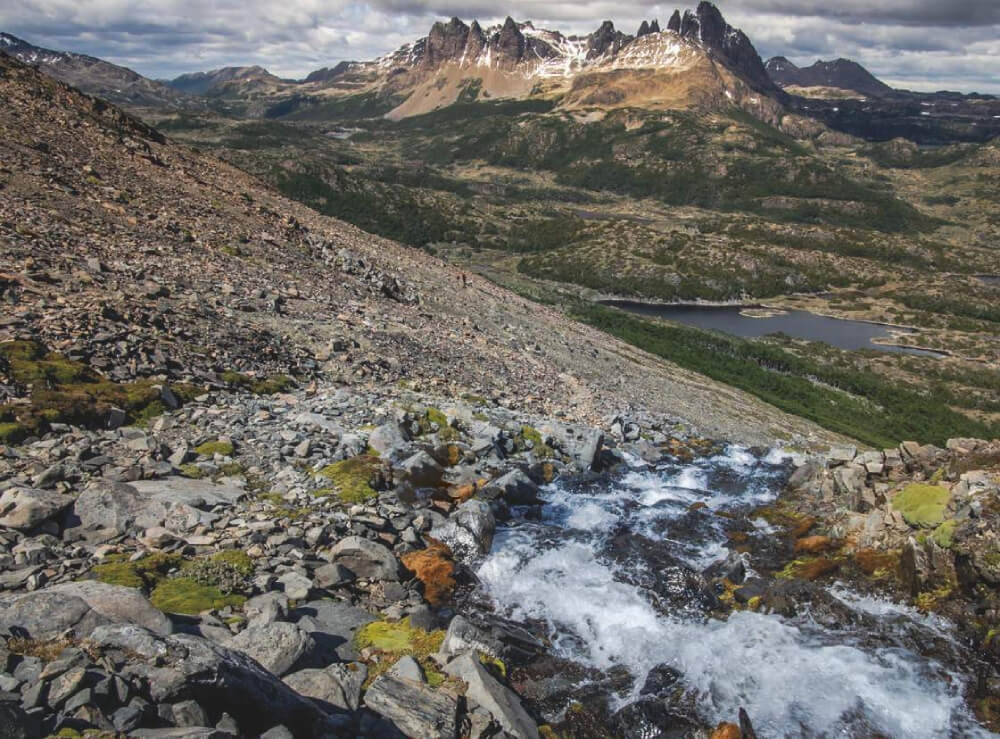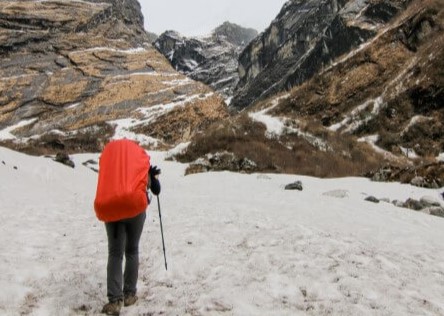Summary
General Information
Laguna y Humedales de Batuco
Country: Chile
Region: Región Metropolitana
Area: Batuco
Nearest city: Santiago
Number of journeys: 1
Total distance: 5,9km
Trail Markings: Esporádica
Trail: Poco marcado y/o intermitente
Route type: Ida y vuelta
Fauna
Lagos / Lagunas
Panorámicas / Paisaje
Señal de celular
Apto para niños menores de 10 años
Difficulty:
I did it
Hiking routes
LAGUNA Y HUMEDALES DE BATUCO
Batuco
Author: Álvaro Vivanco
Introduction
It is very likely that few people know, but one of the best places for bird watching in Chile is located in the Metropolitan Region, just a few kilometers from Santiago. It is the Batuco lagoon, a body of water that impresses any visitor with the quantity and variety of birds that can be observed in it.
The lagoon constitutes a geographical rarity since it is the lowest point of the Metropolitan Region at only 480m altitude, which causes it to form an endorheic basin, that is, its waters do not flow into any river and therefore it is a brackish and shallow lagoon. Due to these characteristics, a large amount of totora and reeds grow in the lagoon, which sometimes almost completely cover it. Despite this, even in dry times, when the lagoon maintains its lowest level, a clear mirror of water can be distinguished.
The diversity of birds that inhabit the lagoon is impressive: to the large number of waterfowl, among which different species of coots, ducks, swans and herons can be mentioned, there is a significant presence of birds of prey, such as tiuques, peucos, kestrels, harriers and eagles that also frequent the lagoon. It is also possible to find migratory birds such as the Chilean flamingo and the piuquén on occasion. As if that were not enough, mammals such as the coypu and quique also inhabit the wetland.
The word Batuco comes from Mapudungun "vatruko" which means "totora water", which explains itself.
The route described here to tour the lagoon and wetland consists of two sections close to each other but separated by a couple of kilometers. The first section corresponds to a stretch of wooden walkways built by the San Carlos de Maipo Foundation to get to know the lagoon. The second section corresponds to an open area of ??the lagoon that can be reached on foot from the vehicular road and allows you to have other views of the sector and probably see different bird species than those in the first section. Unfortunately part of the shore of the lagoon is on private land and it is not possible to pass through there. The state of protection of the lagoon is precarious and the ecosystem found in it is at risk.
More information
Batuco Lagoon Sanctuary
Wikipedia
Appropriate season
All year round.
Access
From Santiago, you have to head north on Route 5 until you reach the exit indicated for Batuco. Take this last option and continue towards Batuco until you take Juan Ortega Beíza street to the left (West). Continue straight on this street which later becomes Av. España until you reach Italia street where you must turn right (North). Continue along Italia street which at some point becomes a dirt road and advances parallel to the Batuco lagoon, although it is not visible. You reach the end of Italia street and turn left (West) along the inner road of the La Laguna farm. Advance along this road until you reach the wetland sector of the lagoon which is well signposted. Here there is a gate where you will receive instructions on where to park and start the tour.
To carry out the second tour described, you must go back along Italia street until you reach the point where a eucalyptus forest begins next to the lagoon on the right (West) going towards Batuco. In this place you can park and there is a trail that leads straight to the lagoon.
Permits / Prices
There is none for this route.
Accommodation / Facilities
Just before the entrance to the walkway area, there is a café with various options for food and drinks.
Recommendations
- Make the journey as silently as possible. This will cause less disturbance among the birds and increase the possibility of spotting a greater number of them.
- Avoid using drones, as they can interrupt the flight of the birds inhabiting the lagoon.
- Do not bring pets. They are prohibited as they may disturb the birds in the lagoon.
Gear
- Sportshoes
- Sunscreen
Schedule
1. Santiago - Laguna Batuco - Santiago
Comments
Laguna y Humedales de Batuco
Álvaro Vivanco 03/07/2023
Other excursionists: Ulli Sandner y Manuel Vivanco
Punto alcanzado: Laguna Batuco
Fecha expedición: 01/07/2023
Este es un lugar extraordinario. Quedamos impresionados con la cantidad de aves que se pueden ver. De todas maneras la laguna completa debería ser parte de un área protegida.
Tracks and Waypoints
Laguna y Humedales de Batuco
Laguna Batuco
Colaborador: Álvaro Vivanco
Fecha: 01/07/2023






















I did it!